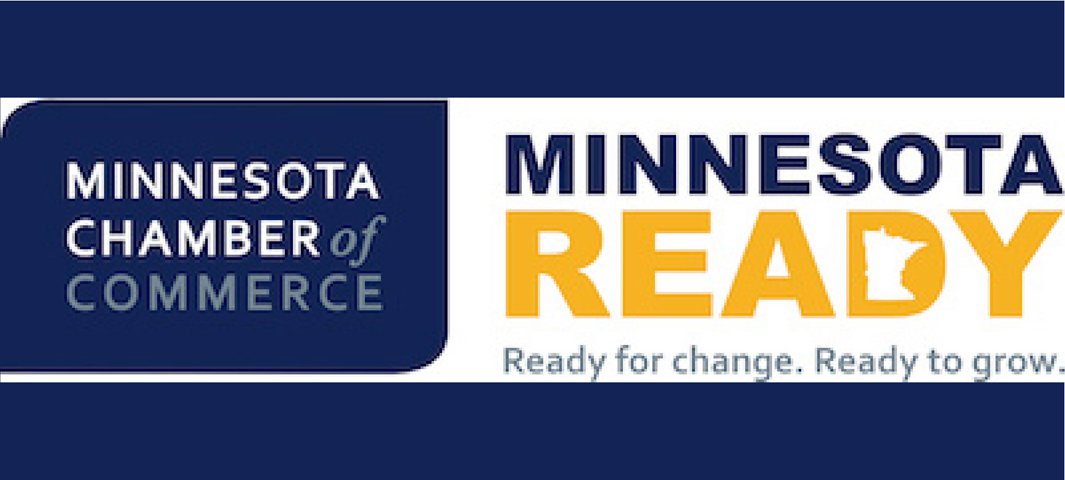Here is Doug Loon’s column for this month underscoring the Minnesota Chamber’s legislative successes. Doug Loon is the president of the Minnesota Chamber of Commerce.
By Doug Loon
The 2017 legislative session was one of the most successful for Chamber members in years. The Minnesota Chamber and our local chamber partners can equivocally say we delivered on your priorities. It was an outstanding year on several fronts, thanks to the tremendous engagement of our statewide grassroots network. These legislative successes will better position Minnesota to be ready for the future – ready for change and ready to grow.
The biggest disappointment was Governor Dayton’s veto of the Uniform State Labor Standards Act, which would have explicitly prevented local governments from mandating local wage and benefit packages on private employers. We staunchly oppose government interference – at any level – in private-sector employee benefits. The worst-case scenario is a local patchwork of mandates that impose different rules and requirements across our state. Our fight continues in the courts as we advance our litigation against the city of Minneapolis regarding its paid sick and safe time mandate.
On other fronts, there’s a wealth of good news to report. Among the highlights of our legislative successes:
Taxes: We worked to pass the largest tax reduction bill since 2001 and the first tax bill signed into law since 2014. The automatic annual inflator in the statewide property tax was eliminated, and the first $100,000 of a property’s market will be exempt from the state levy. The tax credit for research and development was enhanced. The threshold for the estate tax was increased. An individual’s use of Minnesota financial advisers, accountants, etc., will no longer be used to determining residency for tax purposes.
Transportation: We delivered the largest investment in roads and bridges since 2008 – and without an increase in taxes or fees. Existing tax from the sale of auto parts and rental vehicles that now goes into the general fund will be directed to roads and bridges, resulting in nearly $2 billion over 10 years. The Minnesota Department of Transportation will continue to focus on efficiencies. Metro counties will be allowed to expand the light rail and bus rapid transit systems through generation of local option sales tax revenues. In addition, funding is provided over the next biennium to address the current deficit and to ensure regular bus service in the metro area
Real ID: Minnesota became the last remaining state to comply with the federal law so Minnesotans can continue using their current driver’s license to board airplanes and enter federal facilities when the federal law takes effect in January 2018.
Health care: Qualifying Minnesotans who buy insurance in the individual market, and don’t receive federal premium support, will receive a 25% reduction in premiums this year. Small employers will have expanded options to self-insure like most large companies do – giving them more control over costs and flexibility in plan design.
Lawsuit reform: Plaintiffs represented by an attorney must provide a notice of an alleged accessibility violation and give businesses 60 days to respond (30 days longer for weather conditions) before a lawsuit can be filed for state claims under the Minnesota Human Rights Act and the Americans with Disabilities Act. This new law is effective now, curtailing the abusive lawsuits that have been plaguing small businesses across Minnesota during the past several years.
Environmental regulations: Applicants can request a schedule that details when agencies will begin drafting a permit and when it will be issued for public notice. For expedited permits, applicants will receive a description of tasks to be performed, a schedule for completing the tasks and cost estimates.
Education/workforce development: School districts must negotiate a plan for how teachers are laid off due to budgets, and not defer to the fallback rule of LIFO – “last in, first out” – where seniority prevails over performance. The teacher licensure governance system is reformed, and a tiered teacher licensure structure will be created, which will help to ensure there is an effective teacher in every classroom.
Energy: Reforms to the Renewable Development Fund include changing the expensive biomass power mandate, yielding about $700 million in ratepayer savings over 11 years.
We have much to celebrate in our shared success. And, of course, with our legislative efforts wrapped up at the Capitol, we are ready to develop our 2018 agenda. We welcome your engagement as we lay the foundation to make Minnesota ready to compete in the global marketplace.
Doug Loon is president of the Minnesota Chamber of Commerce – www.mnchamber.com.

